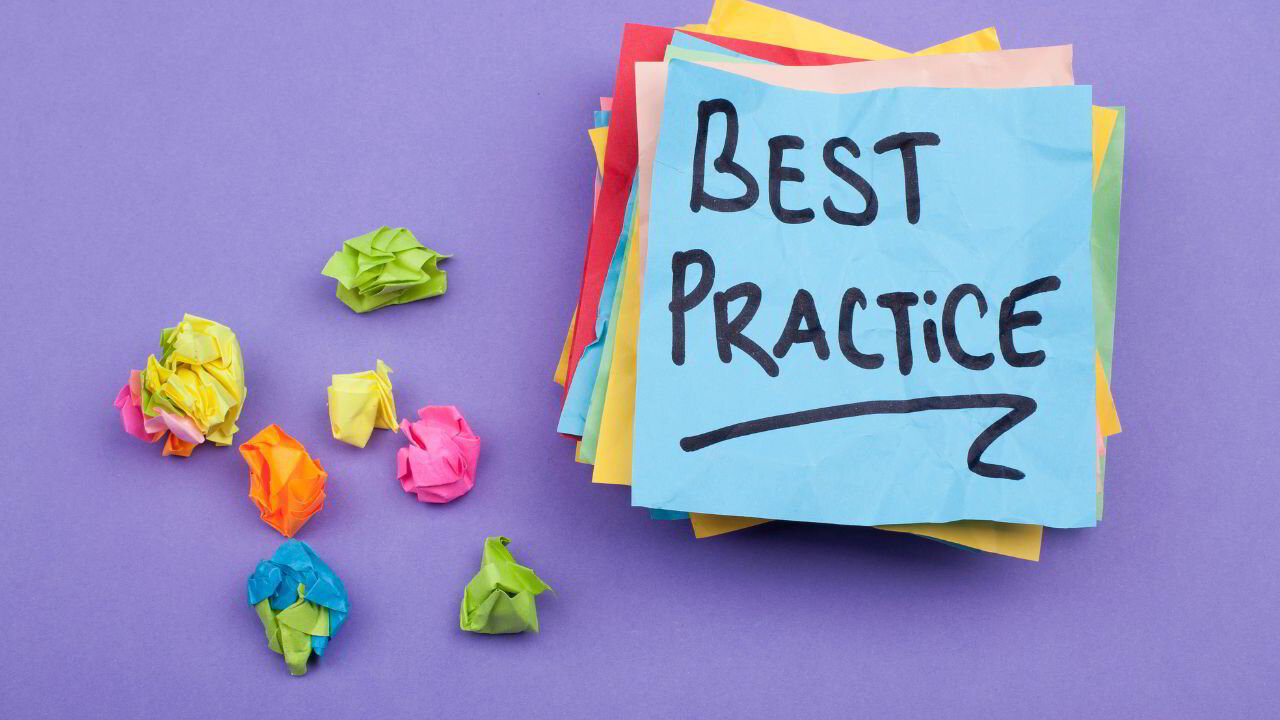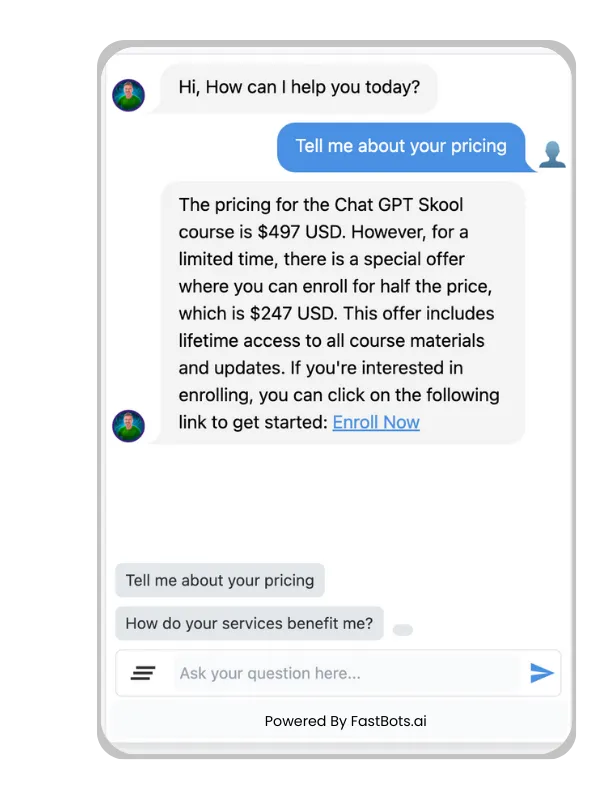In today's fast-paced business landscape, leveraging technology for sales and marketing has become crucial for success. One such innovation is the use of WhatsApp chatbots, which are revolutionising customer interaction and engagement. As WhatsApp is already widely used by millions of people around the globe, incorporating chatbots into this platform can help businesses tap into a robust audience.
WhatsApp chatbots can be utilised in various ways, such as providing personalised product recommendations or simplifying the customer support process. They can be designed as rule-based or AI-based, depending on your needs. Rule-based chatbots follow specific rules and responses, while AI-based chatbots allow for more dynamic interactions and can learn from customer conversations.
By integrating WhatsApp chatbots into your sales and marketing strategies, you can establish a strong brand identity, improve customer engagement, and ultimately boost your bottom line. Whether your goal is to enhance customer support or convert potential leads, WhatsApp chatbots can be a valuable addition to your business toolbox.
Understanding WhatsApp Chatbots
What are WhatsApp Chatbots?
WhatsApp chatbots are automated messaging systems that operate on the popular messaging platform, WhatsApp. There are two primary types of chatbots: rule-based and AI-based chatbots. Rule-based chatbots follow specific rules and respond to questions based on their pre-programmed responses. On the other hand, AI-based chatbots use machine learning to continuously learn and improve their interactions with users.
Implementing a WhatsApp chatbot for sales and marketing purposes can greatly simplify customer support processes, automate repetitive tasks, and establish a strong brand identity.
Benefits of Using Chatbots in Sales and Marketing
1. Customer support: A WhatsApp chatbot can handle simple and repetitive tasks, efficiently handling customer queries and providing timely, relevant responses. For more complex issues, chatbots can seamlessly transfer the conversation to a human agent.
2. Brand identity: customise your chatbot to reflect your brand's personality, creating a consistent and engaging experience for users. WhatsApp's flexibility allows for easy customisation and a unique customer interaction on the platform.
3. Lead generation and nurturing: Chatbots can automatically qualify leads by asking relevant questions and providing information based on user responses. This data can then be used to nurture and guide leads through the sales funnel, ultimately converting them into customers.
4. Cost-effective: Implementing a chatbot can help reduce costs in customer support operations by handling a significant number of inquiries, freeing up human agents to focus on more complex tasks and higher-priority interactions.
5. Global reach: WhatsApp boasts nearly 2 billion active users, which offers businesses a potent opportunity to engage with a vast audience. Implementing a chatbot on this platform can significantly expand your reach and accessibility.
In summary, using WhatsApp chatbots for sales and marketing provides a range of benefits, from improving customer support to streamlining the lead generation process. These chatbot solutions can help businesses of any size improve their overall sales and marketing strategies while maintaining a strong brand identity.
BUILD YOUR OWN WHATSAPP AI CHATBOT
In less than 5 minutes, you could have an AI chatbot fully trained on your business data assisting your Website visitors.
Setting Up Your WhatsApp Chatbot
Choosing the Right Platform
When setting up a WhatsApp chatbot, you need to select a platform that suits your business needs. There are two main types of chatbots: rule-based and AI-based. Rule-based chatbots follow specific rules and responses, while AI-based chatbots rely on machine learning to understand queries and provide dynamic answers. Some popular chatbot platforms include SleekFlow and BotsCrew, among others. Take the time to research and compare features such as ease of use, scalability, and customisation before making a decision.
Designing the Chatbot Flow
A well-designed chatbot flow is essential for a seamless user experience. Start by defining the goals of your chatbot, such as enhancing customer service or providing sales assistance. Next, create a script with potential questions, responses, and conversation paths. Use flowcharts or diagrams to visualise the interaction and ensure the conversation flow is intuitive and user-friendly.
Consider the following tips when designing your chatbot flow:
- Keep responses brief and informative.
- Use simple language to avoid confusion.
- Offer options or prompts to guide users through the conversation.
- Test and revise your flow regularly to ensure its effectiveness.
Complying with WhatsApp Policies
To maintain a high standard of user experience, WhatsApp has established specific policies and guidelines for chatbots. Make sure to follow these rules to avoid penalties or the suspension of your chatbot. Some key points to consider include:
- Obtain user consent before initiating a conversation.
- Avoid sending spam or promotional messages.
- Provide clear instructions for users to opt out of the chat.
- Adhere to data privacy and security regulations (e.g., GDPR).
By choosing the right platform, designing an effective chatbot flow, and following WhatsApp's policies, you can successfully set up a chatbot that streamlines your sales and marketing efforts while providing exceptional customer support.
Integrating Chatbots into sales strategies
As you integrate WhatsApp chatbots into your sales and marketing, it's crucial to have a clear understanding of how they can benefit your business in various stages. In this section, we'll discuss three key areas where chatbots can make a significant impact: lead generation and qualification, product recommendations, and payment and checkout processes.
Lead generation and qualification
WhatsApp chatbots can facilitate smooth and responsive engagement with prospective customers. By automating lead generation, you can:
- Collect contact information, such as names, email addresses, and phone numbers, via interactive conversations.
- Identify customer preferences, interests, and requirements to prioritise leads.
- Offer 24/7 availability to answer customer queries and concerns, resulting in a better user experience.
Implementing a chatbot for lead generation on your website can significantly boost conversion rates. Here are some factors to consider:
1. Make the chatbot interface engaging and straightforward.
2. Personalise and tailor conversation flows based on user inputs.
3. Integrate chatbots with your CRM to store and access customer information for further marketing efforts.
Product Recommendations
A well-designed WhatsApp chatbot can help improve your product recommendations, leading to higher sales and customer satisfaction. Some useful tips include:
- Analyse customer preferences and browsing history to display personalised suggestions.
- Provide dynamic responses based on their inquiries or search queries.
- Implement AI-based chatbots for intelligent recommendations and natural-sounding interactions.
When implementing product recommendations, remember to:
- Use an easy-to-understand interface.
- Create a visually appealing display.
- Offer additional support from human staff when necessary.
Payment and Checkout Processes
WhatsApp chatbots can be used to streamline the payment and checkout processes, ensuring a convenient experience for your customers.
- Automate payment reminders and confirmations using chatbots.
- Guide customers through the entire transaction process, offering assistance in real-time.
- Use chatbots for instant invoice generation and delivery.
Keep in mind these key considerations when optimising your chatbot for payment and checkout processes:
1. Protect customer data with the latest encryption methods.
2. Seamlessly integrate chatbots with popular payment platforms.
3. Regularly update chatbots to prevent vulnerabilities and ensure compliance with relevant regulations.
By incorporating WhatsApp chatbots into these sales strategies, you can leverage their capabilities to enhance the customer experience, drive conversions, and ultimately increase revenue.
Leveraging Chatbots for Marketing Campaigns
WhatsApp chatbots can be an effective tool in your sales and marketing strategy. In this section, we will discuss how to leverage chatbots for marketing campaigns, including broadcasting promotions and updates, engaging with customers, and gathering customer insights.
Broadcasting Promotions and Updates
You can use WhatsApp chatbots to send targeted promotions and updates to your customers. Begin by segmenting your customer base according to their preferences, purchase history, or location. Then, create a personalised message for each segment, highlighting special offers, new products, or important company announcements. Use your chatbot to distribute these messages at the right moment and track customer engagement to optimise your campaigns.
- Personalised offers: Tailor offers to customer preferences or search history.
- Sale announcements: Notify customers of limited-time sales or discounts.
- Product updates: Share news about product launches or updates.
- Company news: Keep customers informed about company milestones and events.
Engaging with customers
WhatsApp chatbots are an excellent way for your business to maintain customer engagement. Chatbots can answer frequently asked questions, provide real-time support, or even guide customers through the purchasing process. By streamlining interactions, you'll create a positive experience for your customers, encouraging them to return and recommend your brand to others.
Engagement strategies:
1. Address customer inquiries: Provide quick and accurate answers to questions
2. Resolve issues: Support customers with any problems they may encounter.
3. Upsell and cross-sell: recommend complementary products to enhance the customer experience.
4. Feedback: Ask for customer feedback to make improvements and gauge satisfaction.
Gathering customer insights
Chatbots can also help you better understand your customers and, in turn, inform your marketing strategy. By analysing customer conversations and actions, you can gain valuable insights into their preferences, needs, and behavior. This information can then be used to refine your marketing efforts and improve your offerings.
To gather customer insights, consider implementing the following:
- Track conversation data and analyse chatbot interactions to identify trends and patterns.
- Monitor customer feedback. Pay attention to customer comments and suggestions.
- Create surveys: Use chatbots to conduct short customer satisfaction surveys.
- Evaluate marketing performance: Monitor chatbot campaign effectiveness and make improvements as needed.
By employing these strategies, you can ensure that your WhatsApp chatbot serves as a powerful tool for driving successful sales and marketing campaigns.

Best Practices and Tips
Optimising Chatbot Conversations
To optimise chatbot conversations for your sales and marketing efforts, follow these best practices:
- Welcome the user with a compelling message and, if possible, personalise it using their first name or customer ID. This ensures a memorable first interaction with your chatbot.
- Offer a choice of language for the customer to communicate in. This enhances the user experience and accommodates a diverse clientele.
- Ensure your chatbot provides instant and automated responses to customer queries, facilitating prompt assistance and 24/7 support.
- Use message formatting like bold and italic, lists, and emojis to make the conversation engaging and visually appealing.
- Make your chatbot capable of smoothly transferring complicated questions to human agents for a seamless customer support experience.
Monitoring and Analysing Chatbot Interactions
Keep track of your WhatsApp chatbot's performance by:
- Regularly monitoring chatbot interactions to ensure it responds accurately and quickly to customer queries.
- Collecting and analysing data on user interactions to identify trends, preferences, and areas for improvement.
- Implementing a feedback system where users can rate their chatbot experience. This helps identify potential issues and provides valuable insights for improvement.
Regularly updating the chatbot
To maintain optimal chatbot performance, consider the following:
- Periodically update your chatbot to reflect changes in your products, services, and offers.
- Utilising user interactions and data analysis to continuously improve and refine your chatbot's conversation flow and capabilities.
- Implementing new features and tools as technology advances will ensure your chatbot remains a valuable asset in your sales and marketing strategy.
By following these best practices and tips, you can leverage your WhatsApp chatbot to effectively enhance your sales and marketing efforts.
Frequently Asked Questions
What are the steps to integrate a chatbot with the WhatsApp Business API for sales enhancement?
1. Choose a suitable chatbot platform or provider.
2. Register your business with the WhatsApp Business API.
3. Configure your API settings and webhook.
4. Develop the chatbot's script by incorporating rules or AI.
5. Test and deploy your chatbot on WhatsApp.
How can a WhatsApp chatbot improve customer engagement and conversion rates?
- Offering instant support and addressing common inquiries
- Personalising interactions based on user data
- Guiding customers through the sales funnel
- Streamlining the purchasing process
What strategies work best when implementing a chatbot for WhatsApp in a marketing campaign?
- Content-based promotions, such as tips, articles, and relevant information
- Targeted offers or discounts tailored to individual preferences
- Engaging users through conversational quizzes or surveys
- Customer re-engagement through personalised follow-ups
How does one measure the performance of a WhatsApp chatbot in driving sales?
- User satisfaction and feedback ratings
- Conversion rates and completed transactions
- Chatbot interaction volume and frequency
- Retention rates and customer lifetime value
Can you provide best-practice examples of chatbots on WhatsApp that have successfully boosted sales?
- Landbot.io: Focused on enhancing customer experiences with personalised journeys
- SleekFlow: Streamlined customer support and sales through automated messages
What are the compliance considerations when using WhatsApp chatbots for marketing purposes?
- GDPR and regional data protection regulations
- WhatsApp's business policy for appropriate content and user engagement
- Informed consent for personalised marketing messages
- Adherence to industry-specific legal and ethical guidelines
BUILD YOUR OWN WHATSAPP AI CHATBOT
In less than 5 minutes, you could have an AI chatbot fully trained on your business data assisting your Website visitors.


